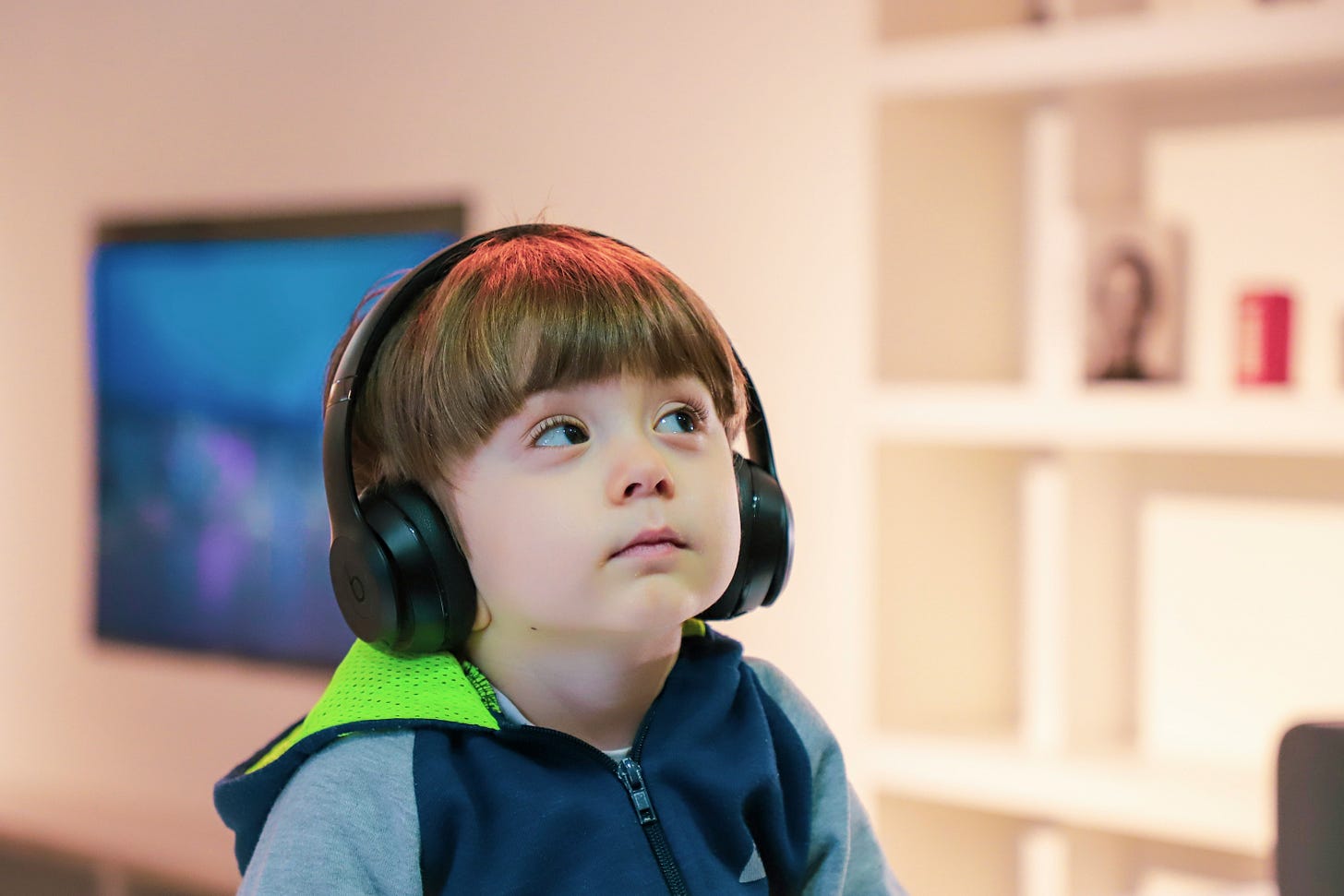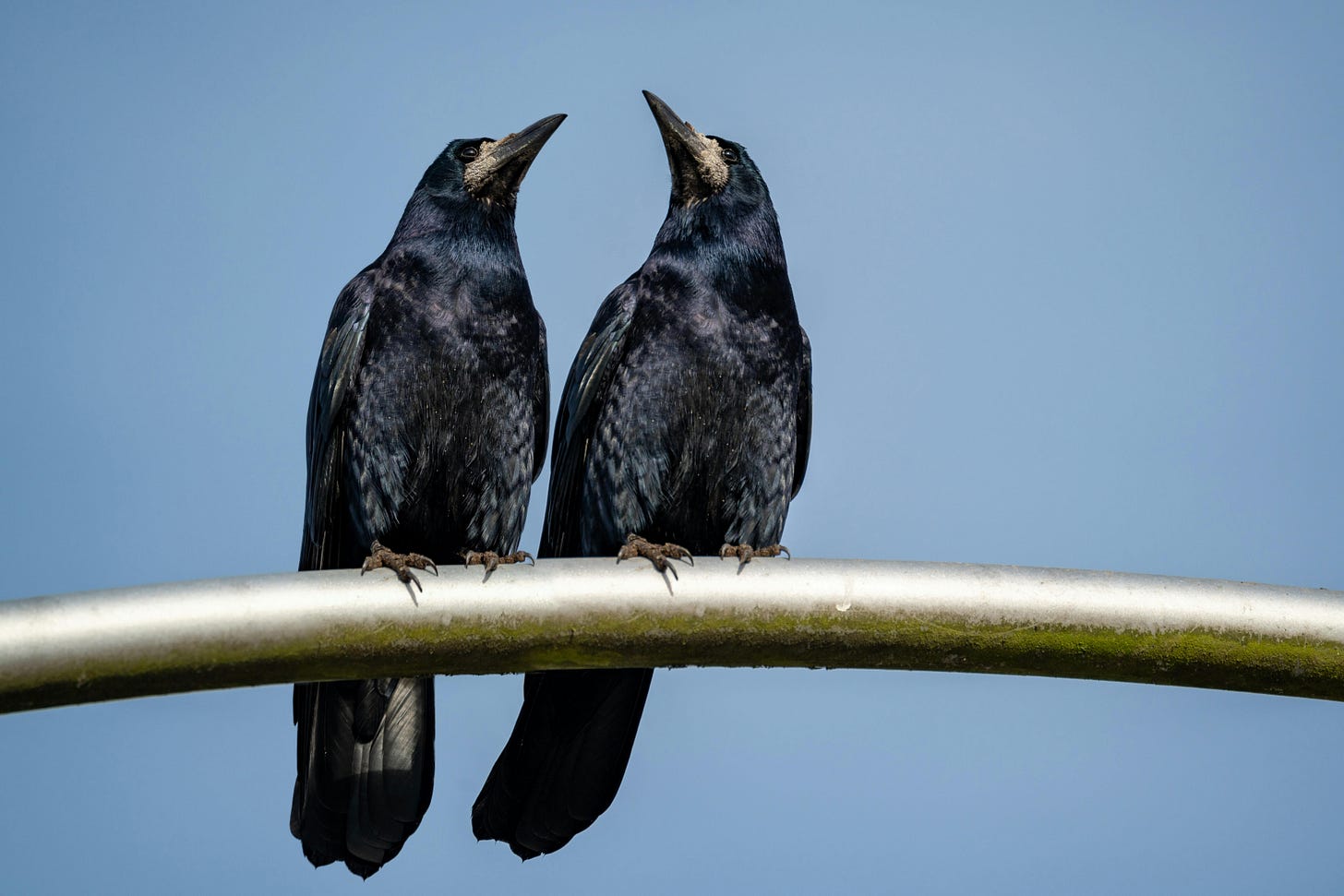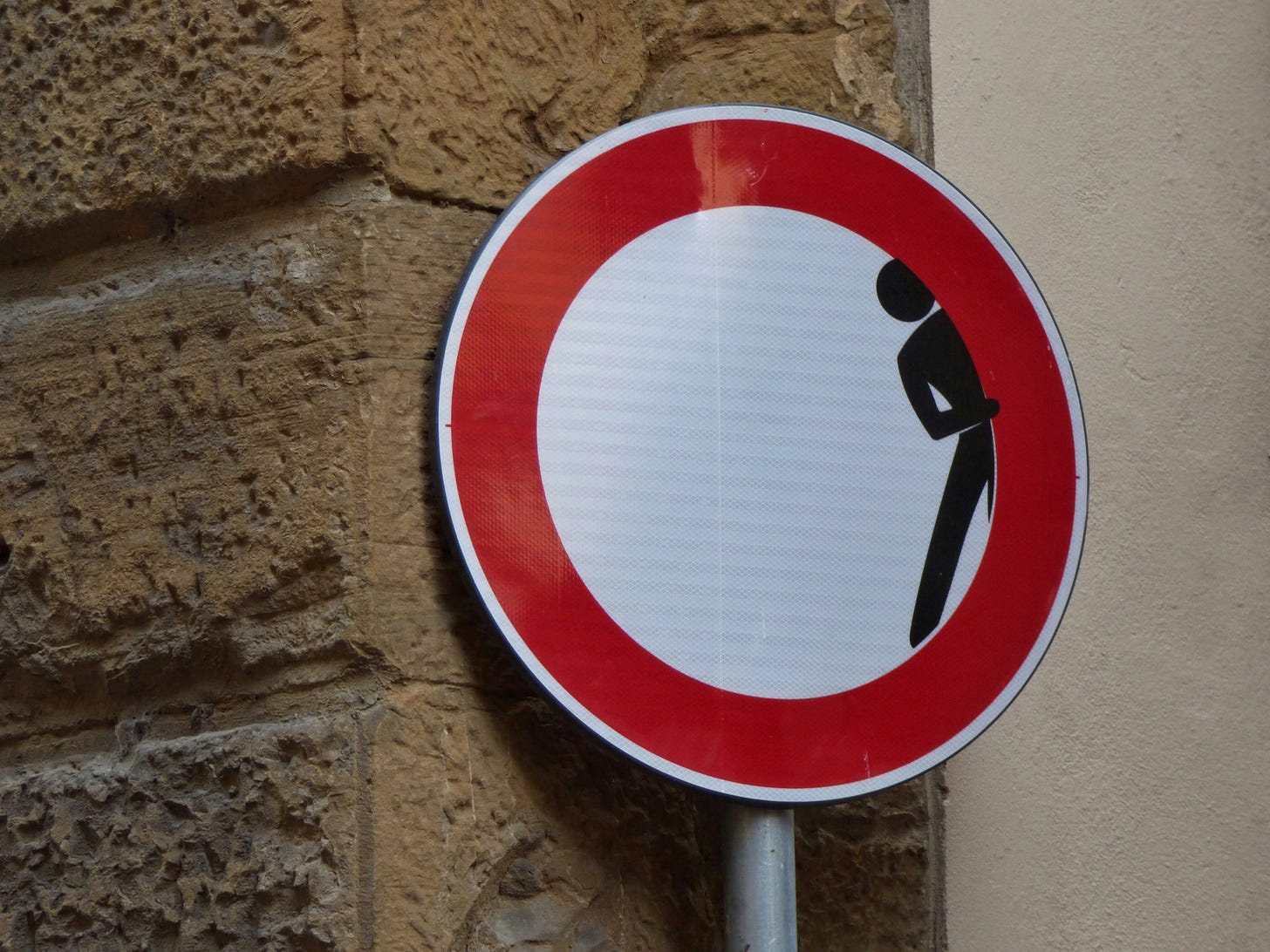The universe's best practical joke: A Zoom call with Mike Sowden
On cosmic coincidences
I recently booked a Zoom call with Mike Sowden, the writer behind the wildly popular Everything Is Amazing. In the spirit of his curious, chaotic and entirely human style, I offer today’s story. If you enjoy it, maybe don’t tell us. We’re both clinging to our carefully curated humility.
Mike had opened up time to chat with strangers (I’m all about strange), and I thought, “Sure, let’s talk to the guy who regularly calls himself an idiot on the internet. What could go wrong?”
We’re cut from the similar cloth, Mike and I: curious enough to ask questions, confused enough to forget the answers, and stubborn enough to chase stories anyway. This one seemed delightfully improbable, until I learned randomness isn’t quite as random as it seems. It’s all about math, which I don’t really get, but fortunately there are people who do. So, that’s where we’re headed.
The call was going great (and no, it wasn’t just Mike’s accent). To be honest, I was so swept up in the moment I can’t even remember what we were talking about. Storytelling, maybe? Or the unbearable politeness of extremely polite people? Honestly, it could’ve been anything from the mating habits of garden slugs to the proper way to pronounce scone. (It’s “scone,” by the way. Like bone. Don’t argue with me.)
I asked Mike how his chats were going and learned this wasn’t his first rodeo. Not that his strange conversations are any of my business, but I was surprised to learn he’s been doing calls like these since the COVID-times. And in all those years, there’s only been one time he had to fake a technical issue to escape. He claimed he couldn’t hear the other person and hung up. Very smooth. Very spy-movie-meets-middle-school.
And then, just as we hit conversational cruising altitude in our call, fate threw in some turbulence.
“Oh... hang on,” Mike said. “Something’s happened. I can’t hear you…”

Now I, being the emotionally mature adult that I am, immediately assumed this was the bit. The classic callback. He was doing the thing.
I gave him a sideways smile.
“Nice! Not falling for that one.”
Mike squinted, fiddled, and cycled through a series of increasingly entertaining expressions. And it turns out, he wasn’t doing the thing. His headphones had gone rogue.
For a solid couple of minutes, we practiced the “Can You Hear Me Now?” shuffle while Mike offered his best impression of a man who’s just realized his audio setup is powered by Swiss cheese. It was the kind of mishap that could headline his next newsletter: Why I Shouldn’t Be Left Alone With Electronics.
Eventually, the sound came back, the moment passed, and we laughed. Hard. Because really—what are the odds?
The Science of Coincidence (a.k.a. “No, the Universe Isn’t Following You. Probably.”)
Seriously. I wanted to know more about this kind of randomness, which is how I fell headfirst into a rabbit hole involving ex-magicians, statistical sleight-of-hand, and some very persuasive math.
Coincidences feel magical. Sometimes too magical. But statistically speaking, they’re just what happens when chaos keeps throwing spaghetti at the wall.
Persi Diaconis, a Stanford mathematician (and former magician—because of course he is), spent decades studying randomness. He once said that true randomness should look messy but often doesn’t, because humans are comically bad at recognizing actual chaos when we see it.
In Methods for Studying Coincidences, Diaconis and fellow math-wizard Frederick Mosteller concluded that “coincidences occur in the minds of observers.” What seems improbable is just what happens when you stack enough randomness on top of itself.
Millions of people. Millions of Zoom calls. Headphones failing. Comfort zones flailing. Self-effacing storytellers faking audio issues. Of course one of those calls was going to land in a near-perfect narrative loop.
In other words: coincidences aren’t rare. We’re just unnervingly good at noticing the ones that feel like they were written by an over-caffeinated screenwriter with a flair for irony. The rest? Lost to the cutting room floor of everyday life.
Why Your Brain Keeps Turning Coincidences Into Netflix Specials
Our brains are wired for story. We’re pattern-seeking creatures. Give us two dots and a line, and we’ll call it a face. Give us two events, and we’ll invent a plotline. Give us three, and we’ll pitch a Netflix series.
This is called apophenia, and it’s not a bug, it’s a feature. It helps us survive, make decisions, and make sense. But it also means we regularly connect things that aren’t connected.
You think of your cousin for the first time in six months, and then she texts. You say “defenestration,” and then hear it again on a podcast five minutes later. You meet Mike Sowden, he tells you a story about faking audio issues, and then—zoinks!—real audio issues.
It feels meaningful because your brain is doing its job a bit too well.

The Case for Cosmic Wink-Winks
Now, here’s where things get a little squishy.
Yes, we understand randomness. We get the math. (Well, some of us. Not me.) We’ve skimmed the abstracts and nodded in all the right places. But even knowing all that, part of us still wants to believe that some coincidences aren’t just coincidences.
Maybe you’re like me: rational on paper, slightly mystical after too much sugar and a weird bird encounter.
Maybe that moment on Zoom was a glitch in the matrix. Maybe those two crows that landed side-by-side, like feathered funeral directors, on my bean trellis were trying to tell me something. (Or maybe they just like beans. Or maybe I just like drama.)
There’s a term for this too: meaning-making. Psychologists say that even if events are random, finding meaning in them can bring comfort, clarity, or even a little momentum when you’re stuck. Sometimes the smallest shift in perspective is what makes the whole thing feel bearable.
Scientists Who Believe in Signs
So what happens when scientists turn their attention to these phenomena to understand what they might mean?
Well, it depends who you ask.
Most scientists lean hard on probability, perception, and how impressively unreliable memory can be. But some thinkers, especially on the fringe of mainstream science, take these moments seriously.
Carl Jung coined the term “synchronicity” to describe when unrelated events feel deeply connected. (Yes, that Jung. The dreams, the archetypes, the beard.) He didn’t say the universe was sending us texts, exactly, but he did believe those moments were worth noticing.
And then there’s parapsychology. Often dismissed, occasionally defended, and never boring, it is a field that investigates things like telepathy, precognition, and other anomalous experiences. Researchers like Dean Radin and Rupert Sheldrake argue that reality may be stranger than mainstream science allows, though their work attracts more skepticism than a spoon-bending contest at a science fair—which, let’s be honest, is kind of the point.
Whether or not you buy what they’re selling, parapsychologists remind us that The Great Mystery might be more mysterious, and more mischievous, than we think.

Final Thoughts: When Life is a Prankster
Mike’s headphones failing right after he told me his great escape story? That’s either a perfect coincidence or a prank pulled by some mischievous celestial jester. Or both.
In the end, I got a story. Mike got his audio back. And the Big Laugh? It got to sneak in one more punchline.
So next time something wildly coincidental happens, don’t just shrug it off. Smile. Marvel. Wonder. Be amazed. Thank the invisible prankster for casting you as the star.
It could’ve picked anyone. But it picked you.
Congratulations: you’re officially the universe’s favorite practical joke.
~Elizabeth
Despite everything I fret about, I want to stay attached to playfulness, and it seems there are no shortage of opportunities to find that when I go looking. Thanks for your willingness to think, laugh, and explore with me today. I hope you know how much I love continuing the conversation in comments. Let’s talk about the weirdest coincidences you’ve had lately. Or ever!
Your engagement here (likes 💚, shares, restacks ♻️) bring richness to this community of friends and help me find new readers. Chicken Scratch is intentionally free, a small kindness I can offer in a place where free is hard to come by. If you’re able to upgrade to a paid subscription, or make a one time donation, your contribution will support more than just me and my work.



I read this this morning in bed and the whole thing was a freakin’ delight.
I love any opportunity to smile. Thanks for reminding us:)